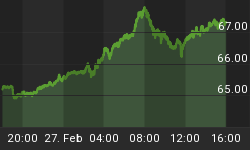With a last-minute debt deal reached, I'm reminded of two holy words in Washington: "compromise" and "bipartisanship." It's amazing that the political elite have so twisted the English language as to lend virtue to these terms. In Washington, these words hold intrinsic value... similar to how "truth" and "honesty" do outside D.C. Unfortunately for the American public, Washington compromises have been and will continue to be the death knell of the U.S. economy - and particularly the free market.
Rarely does compromise ever benefit the small-government side of the argument. Instead, compromise increases the size of the state step by step. For example, suppose the left wants $2 billion for organic school lunches. Of course, the free-market guys are against this bill; they want $0 dollars in extra spending. So, what's the compromise? The two meet at $1 billion.
But this only makes one side better off. In a true compromise, each side would get something. In this case, spending grows by $1 billion, and the small-government side gets nothing from the deal. Future spending was simply reduced from $2 billion to $1 billion. The small-government advocates are further away from their goal than they were prior to the deal. In a way, this really isn't a compromise at all.
One could think of similar examples to prove the point. Suppose someone wanted to put ten drops of arsenic in your food. Does negotiating the person down to five drops improve the situation? No, it doesn't. That's exactly how America has been poisoned over time. Sometimes the dosages are smaller, but it's the same lethal stuff for our long-term fiscal situation.
This happens with regulation as well. Think about the Dodd-Frank Act. The financial industry has been fighting tooth and nail first with Congressmen and now with the government bureaucrats implementing the law to reach a compromise on the particulars of the law. But it's not a compromise where the financials win: Rather, it's a battle to lose less. "The struggle to lose less" has become the definition of a Washington compromise.
A real compromise would involve a tradeoff where both parties gain. For example, regulations could be increased on derivatives, with deregulation occurring in other parts of the financial sector. Trust me; there are plenty of harmful regulations on the books. Each party gains something and trades something else. That's how compromise works in the real world.
But don't expect to see this happen anytime soon - at least not in regard to the free market. In reality, these tradeoffs do happen. However, it works more like this: "I'll sign your war spending bill if you sign my local pork stimulus bill." Sure, that's a real D.C. compromise - and a third party is the real loser, i.e., the American taxpayer.
These kinds of compromises have also allowed the political leaches to bleed your bank accounts. Read this free report to learn all about it and to start profiting from it.















